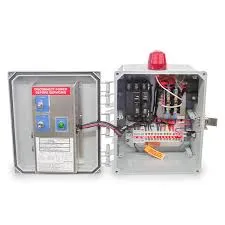Understanding Butyl Foil Tape An Essential Tool for Various Applications
Butyl foil tape is a versatile and highly effective adhesive tape that has gained widespread popularity across various industries. This specialized tape is made from butyl rubber, which provides excellent adhesion and sealing properties. Its construction typically features a metal foil backing, which enhances durability and resistance to environmental factors, making it an ideal choice for applications requiring long-lasting and reliable sealing solutions.
Composition and Properties
Butyl foil tape consists of a butyl rubber adhesive bonded to a metallic foil layer, often made of aluminum. The butyl rubber offers superior adhesion to a wide range of surfaces, including metal, plastic, and glass. The foil backing not only provides structural integrity but also protects the tape from UV radiation, moisture, and temperature fluctuations. This unique combination of materials grants butyl foil tape several advantageous properties
1. Water Resistance Butyl foil tape forms a waterproof seal, making it ideal for outdoor applications or areas exposed to moisture. Its ability to keep out water helps in preventing leaks, mold growth, and other water-related damage.
2. Temperature Resilience The tape can withstand extreme temperature variations, both hot and cold. This characteristic ensures that the adhesive remains effective in various environmental conditions, extending the lifespan of the seal.
3. Flexibility Butyl foil tape is highly flexible, allowing it to conform to irregular surfaces and shapes. This flexibility is crucial when sealing seams, joints, or gaps in construction and automotive applications.
4. Adhesive Strength The butyl adhesive provides an excellent bond that remains intact over time. Once applied, the tape adheres immediately, which eliminates the need for lengthy curing periods.
Applications of Butyl Foil Tape
Due to its exceptional properties, butyl foil tape finds applications in numerous industries, including
butyl foil tape

- Construction In the construction industry, butyl foil tape is commonly used for sealing roofing membranes, flashings, and insulation materials
. Its waterproof nature makes it ideal for preventing leaks in roofs and building envelopes.- Automotive In automotive manufacturing and repair, butyl foil tape is employed to seal windows, doors, and seams. Its ability to resist moisture and temperature changes ensures that vehicles remain protected from environmental elements.
- HVAC Systems Butyl foil tape is an essential component in the installation of heating, ventilation, and air conditioning (HVAC) systems. It is used to seal ductwork, ensuring efficient airflow and energy conservation.
- Marine Applications Boating and marine industries utilize butyl foil tape for sealing joints and seams in boats, as it provides a reliable barrier against water intrusion.
- Electronics The tape is used in the electronics industry for sealing and insulating applications, providing protection against moisture and dust.
Advantages Over Other Tapes
While various types of adhesive tapes are available, butyl foil tape offers distinct advantages. Unlike traditional duct tape, which may degrade over time, butyl foil tape maintains its effectiveness and adhesion even when exposed to harsh environmental conditions. Additionally, its unique blend of properties makes it more suitable for specific applications where a robust, waterproof, and temperature-resistant solution is required.
Conclusion
In summary, butyl foil tape is a critical product for a multitude of applications across diverse industries. Its combination of water resistance, temperature resilience, and outstanding adhesive properties makes it a preferred choice for both professional and DIY projects. As technology advances and construction methods evolve, the demand for reliable sealing solutions like butyl foil tape will undoubtedly continue to grow. Whether in construction, automotive, HVAC, marine, or electronics, this tape remains an essential tool for ensuring durability and performance in various applications. Understanding its features and benefits can help individuals make informed choices when selecting sealing products for their specific needs.
-
XIANGFAN Rubber Tape-Ultimate Solutions for All Your Insulation NeedsNewsJun.24,2025
-
XIANGFAN Rubber Tape-Protection for Industrial and Residential ApplicationsNewsJun.24,2025
-
XIANGFAN Rubber Tape: Superior Safety and Sealing for Demanding EnvironmentsNewsJun.24,2025
-
XIANGFAN Rubber Tape: Reliable Solutions for Every Electrical ChallengeNewsJun.24,2025
-
XIANGFAN Electrical & Industrial Tape: Powering Reliability Across IndustriesNewsJun.24,2025
-
XIANGFAN Electrical & Industrial Tape: Excellence in Every ApplicationNewsJun.24,2025
